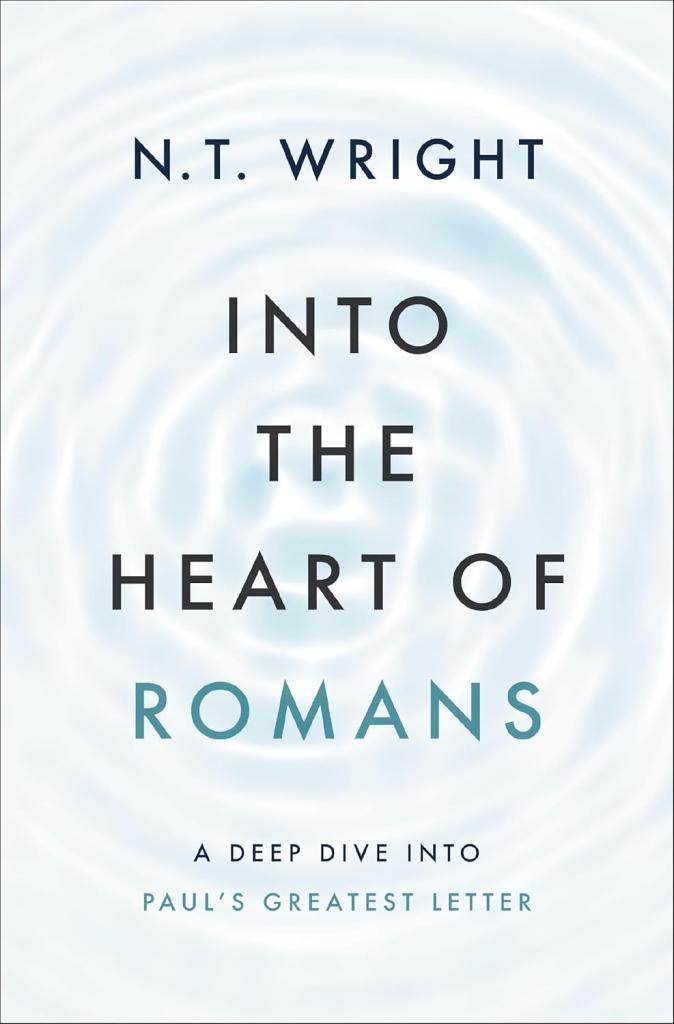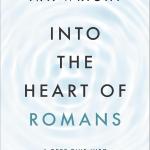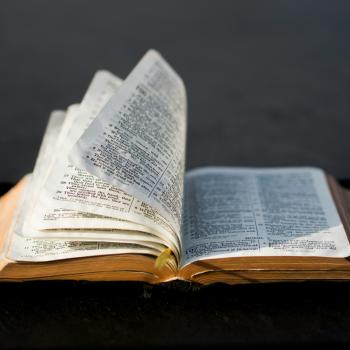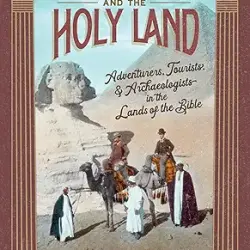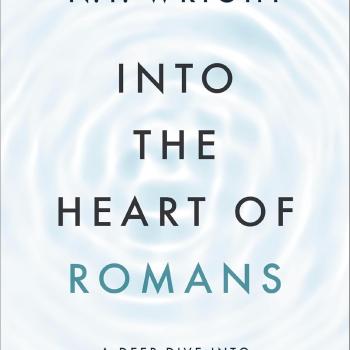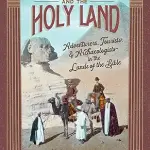By almost universal consent, Romans 8 is a conclusion to a major subsection of Romans. I would say that we have to recognize it as the climax of the positive arguments or ‘probatio’ in Romans before he goes on to argument refuting some common misunderstandings, particularly by Gentiles, about Israel, and whether or not they are still God’s chosen people, if they have not yet accepted Christ as the Jewish Messiah, a people for whom God has a plan. Without question, the greatest and most detailed exegetical study on Paul’s discussion of the Holy Spirit is Gordon Fee’s, classic study God’s Empowering Presence, not the later edited version but the earlier large study. This certainly has a bearing on interpreting Romans 8, since it is the most Spirit-filled chapter in the whole Pauline corpus. Tom has decided not to dialogue with other professors in this study, which leaves more room for his own exposition, but in this case I think he should have made an exception.
In line with various previous studies, Tom reads Rom. 5-8 in light of his conviction that Paul is telling the story in light of Exodus, the liberation from literal slavery, and indeed in light of the later exile among other things, which is to say in light of Exodus and Deuteronomy’s end in particular. I have been, and continue to be unconvinced by this line of approach, not least because Paul connects the new covenant to the Abrahamic covenant, not the Mosaic covenant, which he sees as an interim arrangement until the coming of Christ (see Gal. 4, and also 2 Cor. 3), and this hermeneutical move changes how we should view Paul’s discussion of the Mosaic law, as opposed for example to the law of Christ mentioned in 1 Corinthians but also in Galatians. As Jesus was to say about the Mosaic teaching on divorce, a good deal of the OT law was given due to the hardness of hearts, and now that the divine saving reign was breaking in, in the ministry of Jesus, new occasions teach new duties, and even the old laws which are continued into the new covenant, or modified, intensified, and in some cases said to be fulfilled and are no longer applicable to either Jews or Gentiles in Christ (see for example Mark. 7, and Mark’s comment there).
I bring this up because of Tom’s discussion of Rom. 7, which is not primarily a discussion about the Mosaic law, or Israel, but rather in Rom. 7.7-13 we have Adam speaking in his own voice about the one commandment he was given, and about the sin that was committed, and the spiritual death that ensued. He is not talking about the Mosaic law covenant which did not exist in his day. And the rest of Rom. 7.14-25 is about all those ‘in Adam’. It is important to note for example verse 22 where the law of the mind of the speaker is one thing, and the law or ruling principle also working in this fallen person is another. While it is possible to argue that Rom. 7.14-25 is talking about Jews in bondage to sin, it seems more likely it is talking more generally about those in Adam, who know something of God’s good law and principles, but because of another ruling principle in them, cannot do it. This sounds far more like the Gentiles described in Rom. 1.18-32, and it is good to bear in mind that in Rom. 2 Paul had already mentioned that there are Gentiles who do various good things mentioned in the law, without being under the Mosaic covenant. And when Paul talks about himself in Phil. 3.6 he says as a Pharisaic Jew in regard to law keeping he was blameless, which totally rules out Rom. 7 being a description of Paul’s pre-Christian life. So to sum up— not every reference to law in Romans or elsewhere is a reference to the Mosaic law, and in any case Rom. 10 says, Christ fulfilled the Mosaic laws demands, and it reached its end, goal, zenith in Him. This does not mean that there were no imperatives or commandments in the new covenant, and some of them were identical to those in the Mosaic covenant, for example ‘thou shalt not commit adultery’ which actually Jesus even intensifies. When you read pp. 36ff. of Tom’s exposition on Rom. 7 it becomes clear enough that it only partially agrees with what I’ve just said. In particular the problem with the Mosaic Law, according to Paul is that it could not give life. It could tell a person what to do, but it could not enable them to do it. So the problem is that while the Mosaic Law was meant to be life giving, its effect on those in the bondage of sin was condemnation rather than commendation, it was not life-giving, it was death dealing. At the same time Paul is emphatic that the Mosaic law in itself is holy, just, and good. But it’s not the Holy Spirit who enables persons to obey God. Here’s Fee’s exposition is especially helpful. Notice there is absolutely 0 reference to the Holy Spirit in Rom. 7.7-25, which is a strong clue this is not about the Christian life, which by contrast is characterized in Rom. 8 as involving the Spirit at every turn.


